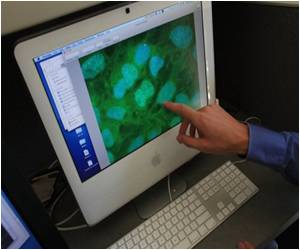Finally, scientists have managed to grow stem cells that could develop into two different types of cells that could finally make a healthy pancreas. The research team led by Dr. Hans Clevers of the Hubrecht Institute, The Netherlands, have isolated and grown stem cells from the pancreases of mice using a 3-D culture system previously developed by the scientists. The results, which are reported in
The EMBO Journal, could eventually lead to ways to repair damaged insulin-producing beta cells or pancreatic duct cells.
Cell signalling molecules known as Wnts and a protein called Lgr5 are essential to produce adult stem cells that can be coaxed to grow and divide rapidly. However, these signaling pathways and molecules are inactive in the adult pancreas. "We have found a way to activate the Wnt pathway to produce an unlimited expansion of pancreatic stem cells isolated from mice," Clevers said. "By changing the growth conditions we can select two different fates for the stem cells and generate large numbers of either hormone-producing beta cells or pancreatic duct cells." He added: "This work is still at a very early stage and further experiments are needed before we can use such an approach for the culture of human cells but the results are a promising proof-of-concept."
In the study, the pancreases of mice were altered in a way that makes duct cells proliferate and differentiate. Some cells in this new population were stem cells that were capable of self-renewal. The scientists were able to culture these cells to give rise to large numbers of pancreatic cells or tiny clumps of tissue referred to as organoids.
Therapeutic strategies for pancreatic disease have been hampered by a lack of cell culture systems that allow scientists to grow replacement tissue in a test tube or on a dish. Alternative approaches such as tissue transplantation are limited by the scarcity of donors and the possibility of tissue rejection. The new work offers access to an unlimited supply of pancreatic stem cells that would be beneficial for the development of new therapeutic interventions for pancreatic diseases like diabetes.
The next steps for the scientists will include further refinement of the cell culture methods developed in this study and investigation of ways to extend the approach to human pancreatic cells.
Source-Eurekalert















